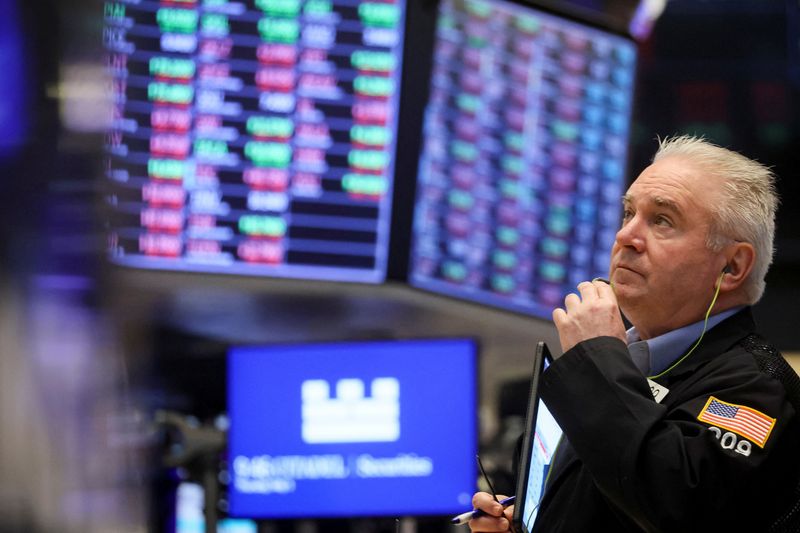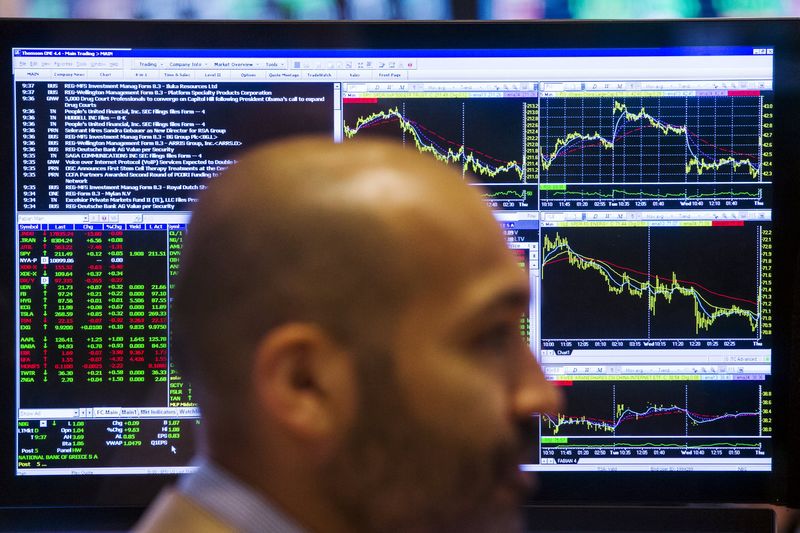Deutsche Bank (ETR:) set a new target for the , predicting the benchmark index will reach 7000 by the end of 2025.
Jim Reid, Head of Global Economics and Thematic Research at Deutsche Bank, commented that this forecast hinges on a solid demand-supply backdrop for U.S. equities, with the bank expecting continued robust inflows into both equity and bond markets, albeit at a slightly slower pace.
The new Street-high projection also factors in an anticipated increase in S&P 500 buybacks from an annual run rate of $1.1 trillion to about $1.3 trillion next year, rising in step with earnings.
“We see various aspects of the cycle still to come, including a move from de- to re-stocking; a pickup in capex outside Tech; a manufacturing recovery; rises in consumer and corporate confidence; a recovery in capital markets and M&A activity; a pickup in loan growth; and rest of the world growth,” Reid wrote in a note.
The bank’s analysis suggests that the equity positioning is currently near the top of its historical range, indicating limited room for further upside from that angle. However, Deutsche Bank sees the demand-supply dynamics for U.S. stocks as remaining strong, even with conservative assumptions.
This outlook is supported by the S&P 500’s performance within the post-GFC uptrend channel, which is projected to be between 6000 and 7500 by the end of 2025. The bank expects the S&P 500 to reach 6400 as soon as in Q1 2025.
Sector-wise, Deutsche Bank maintains a cyclical tilt, staying neutral on Mega Cap Growth & Technology, as growth slows and derating continues. The financial sector is favored with an overweight rating due to multiple converging tailwinds.
Consumer Cyclicals and Materials are also overweight, banking on the broader economic cycle’s momentum. Industrials are held at neutral, with mega-trends seemingly factored into current valuations.
Energy is neutral, subject to oil price volatility, while Utilities and are also neutral. Healthcare, Staples, and Telecom (BCBA:) are underweighted in the bank’s sector outlook.
In terms of earnings, Deutsche Bank projects that S&P 500 EPS will grow by 11% in 2024 to $253, aligning with typical growth rates outside of recessions. The momentum is expected to carry into 2025, with an estimated EPS growth of 11.6% to $282.
However, if global growth accelerates to the higher end of its historical range, earnings growth could reach 17%, potentially pushing S&P 500 EPS to $295.
Robust economic backdrop
The S&P 500’s strong performance, with a steep trend channel of 23.7% annual growth rate from its late 2022 low, is attributed to low expectations and positioning at the start of the cycle, in the face of rapid interest rate hikes.
The bank notes that the economic backdrop has been robust, with a combination of low unemployment and strong GDP growth that is historically rare. This has been complemented by cross-asset inflows as excess cash from the pandemic has led to larger allocations to bonds and equities.
Looking ahead, Deutsche Bank remains constructive on the economic cycle. Consumer spending is expected to continue its solid growth, with a potential shift from services back to goods.
Early cycle indicators are showing positive signs, suggesting various aspects of the cycle are yet to unfold, including inventory restocking, capital expenditure growth outside of technology, and a manufacturing recovery.
The bank also anticipates rises in consumer and corporate confidence, a recovery in capital markets and M&A activity, increased loan growth, and stronger global economic growth.
Tariffs risk
The US president-elect Donald Trump said today that plans to sign an executive order on 20 January 2025 setting a 25% tariff on all goods coming from Mexico and Canada, as well as “an additional 10% tariff, above any additional tariffs” on China.
On this topic, Reid and his team wrote:
“Over several rounds of the last trade war, escalations saw equity selloffs which then prompted de-escalations, especially after declines of -10%, with the S&P 500 in a wide volatile range.”
When it comes to the other regions, Deutsche Bank sees “plenty of upside” for European equities, although not enough to outperform the US.






